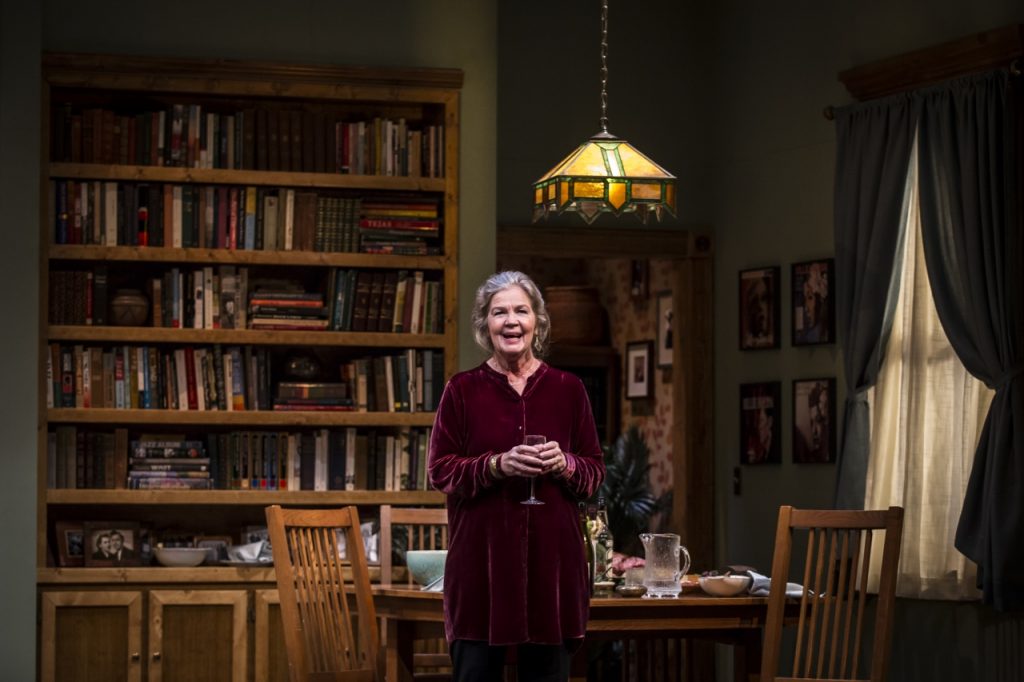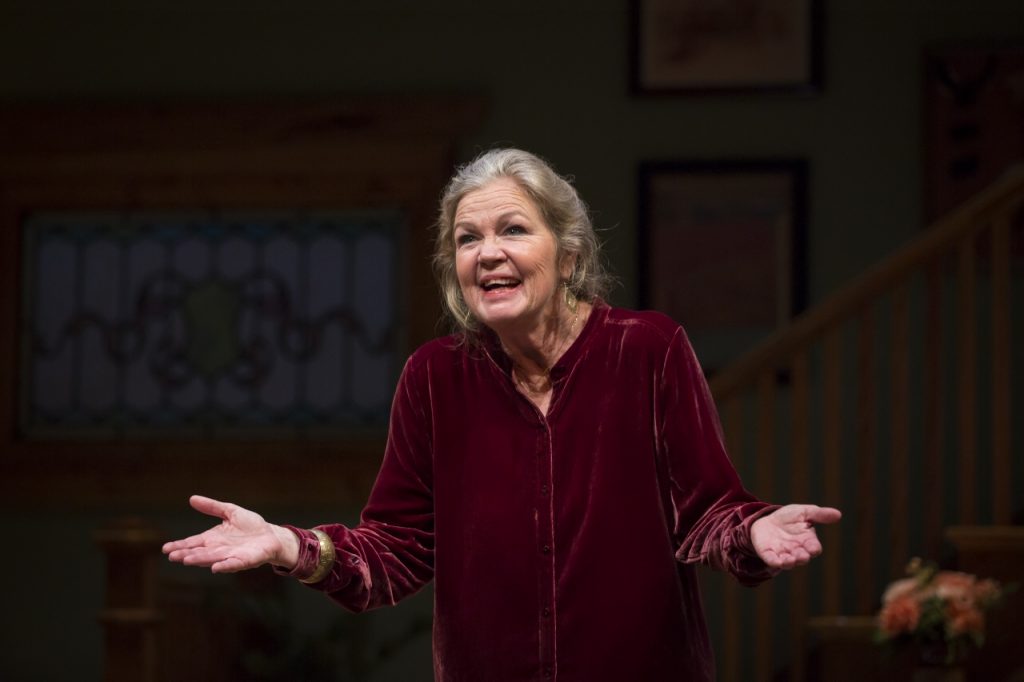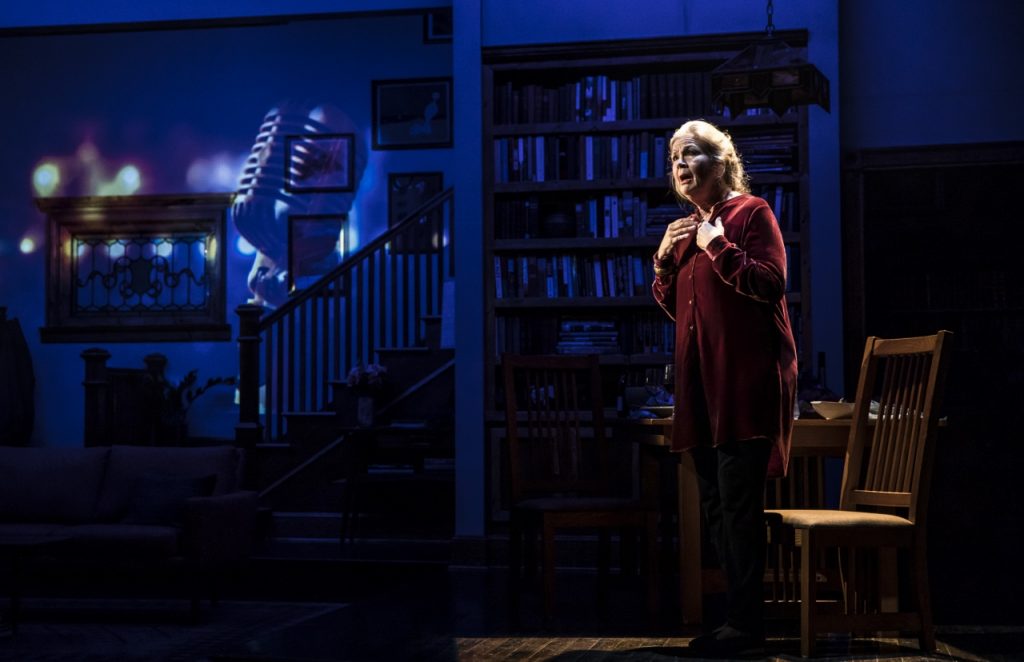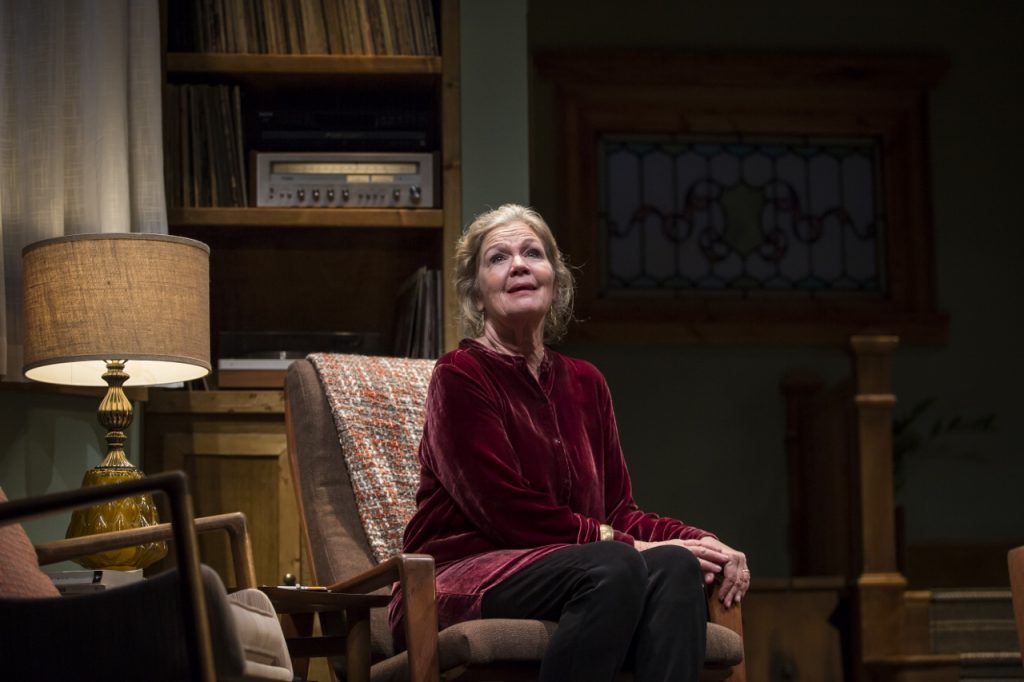WHEN REALISM IS NOT ENOUGH,
SOMETHING IS ROTTEN IN DENMARK
It’s strange that an enterprise as lavishly bounteous as Goodman Theatre should seem to shrink itself: Currently it’s hosting two world-premiere solo shows in both its big Dearborn Street stages. (Talk about taking “less is more” too literally: Also, in the last year, Goodman has offered audiences yet another solo show, Pamplona, and a two-person play, Having Our Say. Does this trend have to do with money?)
David Cale’s otherwise excellent We’re Only Alive for a Short Amount of Time is now flanked by another 90-minute, one-act, one-person world premiere, Lady in Denmark, Dael Orlandersmth’s fourth collaboration, sufficiently staged by Victory Gardens Artistic Director Chay Yew. In Cale’s case the small scale is extenuated if not redeemed by an artistic and emotional payoff. Not so Lady in Denmark.
No question, both plays are tenderly personal, stuff that requires intimacy as much as immediacy. As if to prove the technical budget remains generous, the newest one is set in Andrew Boyce’s immaculately detailed recreation of an apartment in Chicago’s Andersonville neighborhood (arbitrarily set in 2014). You could live there right now.
It’s been the contented home for several decades of a Danish emigrant named Helene, poignantly and winsomely played by Linda Gehringer (who curiously does not bother with a Danish accent). With no explanation for why she’s telling us her life story, Helene regales us with scattershot reminiscences of her late husband Lars. Three weeks earlier this gentle dreamer had died of stomach cancer at the age of 80. Now it’s his birthday anniversary and his widow is cleaning up after a memorial meal, with left-over Danish pastries and other goodies visible on a crowded kitchen table.
We learn a lot of unasked-for details about Helene’s life and lifestyle: how this physician’s daughter smokes unrepentantly; how lonely she felt in Copenhagen during the Nazi occupation until she met Lars; how they separated only to love again and tie the knot. To devote herself entirely to one man, Helene had to forget another who raped her at 14 in 1950. For Helene that enduring humiliation represents more concentrated suffering than the Holocaust, which happened when she was between 4 and 9. (All she really recalls is the sound of tanks in the street.)
What got her through the sexual violation and the dark days of World War II was one constant consolation — the sad songs of jazz legend Billie Holiday. Frequenting the smoky jazz clubs of the Danish capital, Helene developed a passion for the subversive “swing” sound of American pop. Specifically, Helene considers “Strange Fruit” and “God Bless the Child” personal testaments of survival, and she fell under Lars’s spell while hearing “Them There Eyes.”
Before she moves to America, in 1954 a much-moved Helene gets to meet her idol: With help from the theater manager, she and her family greet “Lady Day” after a concert at Tivoli Gardens. (They wanted to wear her signature gardenia corsage but the florists said they weren’t in season.) The fans even bring her home for post-show drinks and a home-cooked meal. Helene’s father offers advice for Billie’s killer cough and notices the needle marks on her arms. (Billie will die of a drug overdose five years later.)
Helene continues to confide rambling information about those close to her, like her “ingrate” daughter-in-law Ingrid whose existence thoroughly displeases the usually complacent matron. Occasionally interesting, this hearsay stuff would mean much more if it weren’t second hand and if it led somewhere.
And that’s the problem with this warmly mounted but ultimately inconsequential slice of life. No one wants to be cruel enough to say “So what?” after it’s over, but that remains a terrible temptation. For all her sweetly demure confessionals, Helene remains an unfinished portrait of a very ordinary person.
You really do wonder why she’s telling us this. There’s no real reward for all these revelations. Showing how powerful singing can cross racial and cultural barriers (which is hardly news), Helene loved Billie Holiday as anyone with half a heart must. She just lost a husband who’d been very good for and to her. Her children are no longer with her. These things happen.
photos by Liz Lauren
Lady in Denmark
Goodman Theatre, 170 North Dearborn
ends on November 18, 2018
for tickets, call 312.443.3800 or visit Goodman Theatre
for more shows, visit Theatre in Chicago






{ 1 comment… read it below or add one }
A fine review, but did want to note, Ingrid is the girl friend of Helene’s grand nephew, not a daughter-in-law.